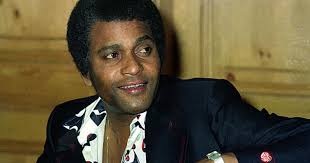American vocalist Charley Pride, the first modern black music superstar of country music, has died at 86.
Pride reportedly died on Dec. 12 in Dallas, Texas from complications related to COVID-19, Variety.com reports.
He had just been seen by millions on live television in November as he received a lifetime achievement award from the Country Music Association on its annual telecast on November 11 where he did his final performance, a duet of his classic “Kiss an Angel Good Mornin’,” with Jimmie Allen, a rising black star in country music.
Pride followed that with a lengthy and heartfelt speech as the small audience of nominees and their guests stood in rapt attention.
Maren Morris, who also performed on the CMAs and was the leading winner, was among those quick to wonder if there could be a connection, with Pride apparently contracting COVID-19 so soon after appearing on the show.
“I don’t want to jump to conclusions because no family statement has been made but if this was a result of the CMAs being indoors, we should all be outraged. Rest in power, Charley,” Morris tweeted.
Among those paying quick tribute as the news shocked the country music world was Rissi Palmer, another rising black star in the genre who has celebrated the path Pride laid for her and others.
“I have no words,” Palmer also tweeted.
Legendary country music songstress Dolly Parton tweeted, “I’m so heartbroken that one of my dearest and oldest friends, Charley Pride, has passed away. It’s even worse to know that he passed away from COVID-19. What a horrible, horrible virus. Charley, we will always love you.”
During the ’60s, many R&B performers moved into the country realm; most famously, Ray Charles enjoyed a smash hit with his No. 1 album “Modern Sounds in Country and Western Music.” But Pride was the first Black artist of the day to be signed and marketed by the country division of a major American label.
Though his first work was promoted by RCA without images that would divulge his race, Pride found his music quickly embraced by a Southern, white, working-class audience that found it could identify with the singer’s sharecropping roots and universal aspirations. His keen interpretation of deftly penned honky-tonk songs kept him at the top for nearly two decades.
“He was the right singer at the right time in history. Pride definitely profited from the heightened mood of racial tolerance promoted in the United States by the civil rights movement and from the desires of the country music industry to improve its image and broaden its audience,” wrote country music historian Bill C. Malone of his remarkable success.
He is survived by his wife, Rozene; two sons; and a daughter.




